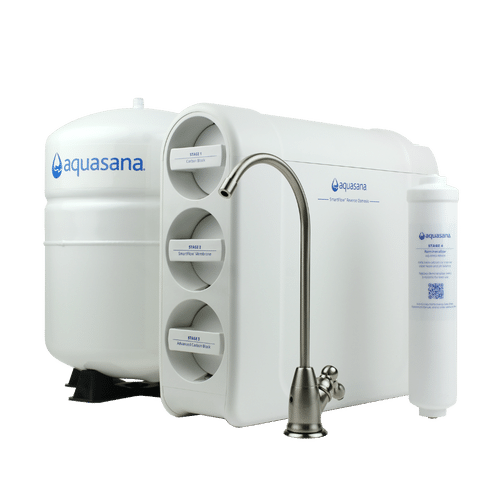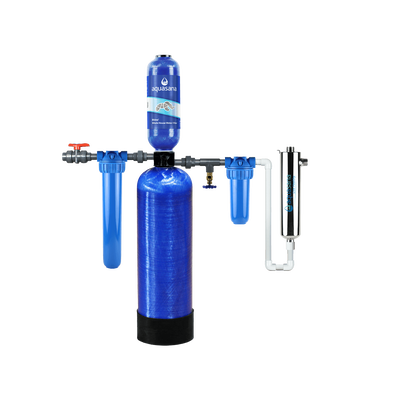2. Test your water for sulfur
While checking for a sulfur smell in the presence of hot and cold water, and seeing if it lingers can give you an idea of the issue’s cause, testing your water can confirm your theory or reveal the true problem.
If you receive your water from the city, start by examining the water quality report they provide detailing the contaminants that are present. Check for any indications of elevated sulfur levels, as this can help determine whether the problem happens during or after treatment. If the report shows high levels of sulfur, it could mean their treatment process is causing the issue. If the report doesn’t show high levels of sulfur, it means the water may be contaminated after leaving the treatment process. This could be caused by contamination in the water lines leading to your house, or in your home’s plumbing.
If you rely on water from a private well, you’ll need to test the water yourself or hire a professional to check for the presence of sulfur and other contaminants. You can buy DIY water testing kits, but a professional may be able to perform a more comprehensive test and provide advice if contaminants are found.
3. Treat the water based on your results
Depending on your results from steps one and two, below are some potential ways to address your water quality issues.
If the sulfur smell is only in hot water, the issue is likely from the magnesium rod in your water heater reacting with sulfite ions to create hydrogen sulfide gas. You can fix this issue by replacing the magnesium rod in your water heater with an aluminum rod to prevent the reaction.
If the smell occurs in cold water and goes away quickly, the issue is likely from sulfur-reducing bacteria in stagnant water. In this case, shock chlorination, a process involving the introduction of a high concentration of chlorine to the water system, can eliminate the bacteria and mitigate the odor.
If the smell occurs in both hot and cold water and does not go away, it indicates a more serious contamination issue that may require a combination of methods to address. You can start by replacing the magnesium rod in your water heater with an aluminum rod and pair that with other methods like shock chlorination, aeration, and potassium permanganate treatment. Aeration involves exposing the water to air, allowing dissolved gasses like hydrogen sulfide to escape. On the other hand, potassium permanganate is a powerful oxidizing agent that can effectively neutralize sulfur compounds in water, eliminating both the odor and taste.

While it’s great to do what you can to identify and correct the issue yourself, we recommend contacting a local professional in your area who can confirm your issue and help you address it.
Enjoy better quality tap water with Aquasana
Addressing the sulfur smell in your water requires a thoughtful and diagnostic approach. By assessing whether the issue stems from the tap water or the water heater, testing for sulfur content, and applying targeted treatment methods based on the results — you can understand what’s causing the smell and address the issue for good.
If you identify other harmful contaminants while addressing the sulfur smell or simply want to improve the quality of your tap water, Aquasana's whole house water filtration systems can help you provide safer water throughout your house. With specialized systems available for both general water sources and dedicated solutions for well water, you can find a system for your specific needs. If the pipes in your home are a source of contamination, you can also choose from a variety of point-of-use under sink and countertop systems.
UNDER SINK WATER FILTER
SmartFlow® Reverse Osmosis
High-efficiency reverse osmosis system removes up to 99.99% of 90 contaminants, including fluoride, arsenic, chlorine, and lead.




